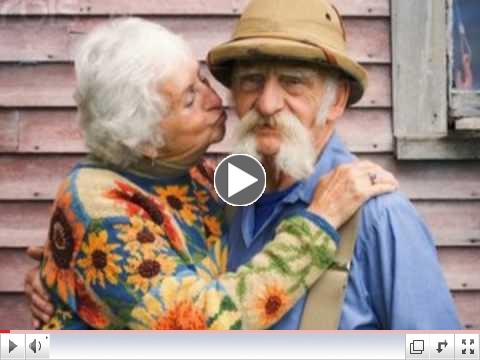 | In Spite Of Ourselves -
John Prine, Iris DeMent |
|

NEW CCDS Pamphlet
on Climate Change.
|

New CCDS Book Reporting on Vietnam
|
|
Radical Jesus:
A Graphic History of Faith 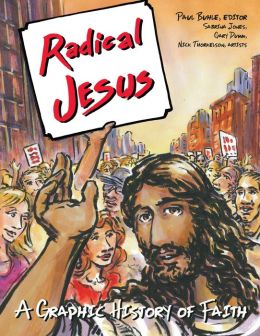 By Paul BuhleHerald Press By Paul BuhleHerald Press
|

Want to Know what CCDS has
been doing...Check it Out!
|
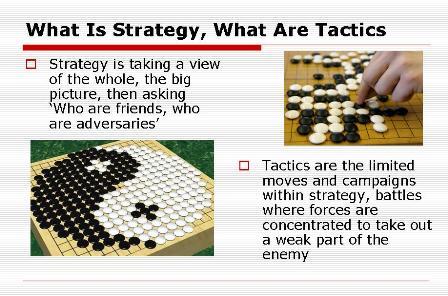 Keep On Keepin' On Keep On Keepin' OnHating the 'Middle Class,' Why Socialists Run in Elections, Strategy and Tactics Slide Slow, Class and Privilege, the Green New Deal ...and other Short Posts on Tumblr by Carl Davidson
|

Edited by Carl Davidson Revolutionary Youth and the New Working Class: The Praxis Papers, the Port Authority Statement, the RYM Documents and other Lost Writings of SDS Changemaker, 273pp, $22.50
For the full contents, click the link and view 'Preview' under the cover graphic.
|
|
By Randy Shannon, CCDS

"Everyone has the right to work, to free of employment, to just and favorable conditions of work and to protection against unemployment."
- United Nations Universal Declaration of Human Rights, December 10, 1948
I. Introduction
The "Great Recession" that began in 2007 has caused the greatest percent of job losses since the Great Depression of 1929. This crisis is the end of an era of unrestrained 'neo-liberal' capitalism that became public policy during the Reagan administration. The crisis marks a new level of instability with the growth of a global financial elite that targeted US workers and our trade unions after World War II.
|
|
Order Our
Full Employment Booklets
 |
 The new annual edition of our journal of discussion and analysis is now out. More than 170 pages, it includes 14 articles on strategy austerity, organizing, and the right. Cost is $10 plus shipping. Or get one by becoming a sustainer. Click the title to buy it directly. The new annual edition of our journal of discussion and analysis is now out. More than 170 pages, it includes 14 articles on strategy austerity, organizing, and the right. Cost is $10 plus shipping. Or get one by becoming a sustainer. Click the title to buy it directly.
|
...In a new and updated 2nd Edition
Capitalism may well collapse under its own excesses, but what would one propose to replace it? Margaret Thatcher's mantra was TINA...There Is No Alternative. David Schweickart's vision of "Economic Democracy" proposes a serious alternative. Even more fundamentally, it opens the door to thinking about alternatives. His may or may not turn out to be the definitive "successor system," but he is a leader in breaking out of the box. |
 by Paul KrehbielAutumn Leaf Press, $25.64
by Paul KrehbielAutumn Leaf Press, $25.64 | | Shades of Justice Video: Bringing Down a President, Ending a War |
|
 By Giuseppe Fiori
Verso, 30 pages
|

Essays on Mondragon, Marx, Gramsci
and the Green and Solidarity Economies |

The Story of Workers Coops
in the Connecticut River
Valley Today.
Coauthors: Janelle Cornwell
(Worcester State University),
Michael Johnson (Grassroots
Economic Organizing Newsletter)
and Adam Trott (Valley Alliance
of Worker Co-operatives and
Collective Copies)
|

- Foreword by Susan Brownmiller
- Preface by Ken Wachsberger
$37.50 + $6 shipping
|
|
Discussion Documents for a Militant Movement

By Don Hamerquist. Reviewed by J Sakai
|
|
|
|
An Invitation to CCDSers and Friends...
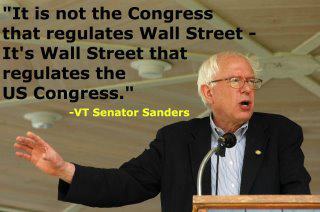 Opposing the Opposing the
Right, War and
Finance Capital
We're the Committees of Correspondence for Democracy and Socialism...Do you have friends who should see this? Pass it on...Do you have a blog of your own? Others you love to read every day? Well, this is a place where you can share access to them with the rest of your comrades. Just pick your greatest hits for the week and send them to us at carld717@gmail.com!
Most of all, it's urgent that you support a raise for low-wage workers, oppose militarized police and the ongoing 'long wars,' plan for 2016 races now, oppose austerity, support the 'Moral Mondays' in North Carolina and other states, the fight for the Green New Deal, a just immigration policy and the Congressional Progressive Caucus' 'Back to Work Budget'! We're doing more than ever, and have big plans. So pay your dues, make a donation and become a sustainer. Do it Now! Check the link at the bottom... |
Bernie Sanders Exposes Republican Plot To Cut Social Security For 11 Million Disabled People
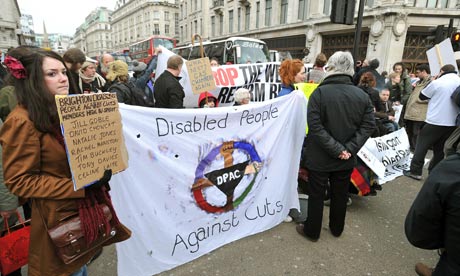
By Jason Easley Politicus USA via Portside
Jan 12, 2015 - Sen. Bernie Sanders (I-VT) is warning that Republicans are plotting to cut Social Security benefits for 11 million disabled Americans through a rule change that would make it more difficult to fund the disability account.
In a statement, Sen. Sanders explained what the House rules change will mean for disabled Americans who depend on Social Security:
"Around 11 million Americans, including nearly 2 million children with a disabled parent, rely on Social Security to help keep them out of poverty," said Sanders, the ranking member of the Senate Budget Committee.
A new House rule creates a legal obstacle course that would make it harder to shift funds from the Social Security retirement account, which has a big surplus, to the smaller disability account. Such transfers have been done routinely in the past under both Republican and Democratic presidencies, including four times under President Ronald Reagan.
Without a transfer to shore up the disability fund, Social Security Administration experts say the disability program will run short of money next year, and there will be only enough to cover 80 percent of scheduled benefits.
"Instead of working to strengthen Social Security for all, the House Republicans' new rule puts America's most vulnerable at risk," Sanders said.
The rule change is a part of a Republican effort to kill Social Security. If the disability fund can't be replenished, Benefits will have to be cut, and some of the most economically vulnerable people in our society will be pushed deeper into poverty. According to experts [1], the problem with the Social Security disability cash assistance programs is that it limits the earnings of disabled individuals to just above the poverty line. This creates a trap that makes it impossible for individuals who can't work to escape poverty.
The ideal solution would be the exact opposite of what Republicans are trying to do. Instead of cutting benefits, lawmakers should raise the income limit, so that disabled individuals can keep their benefits while also possessing an avenue to potentially escape poverty....(Click title for more)
|
|
|
Former Chicago Cop, Shot 28 Times by Police & Found Guilty of Attempted Murder, Has 40-Year Sentence Commuted
By Kevin Gosztola
FireDogLake
Jan 13, 2015 - Illinois Governor Pat Quinn, in his final day as governor, commuted the forty-year sentence of Howard Morgan, a former Chicago police officer who was shot 28 times by four white police officers.
Morgan was accused of shooting the police officers. A jury acquitted him of two counts of aggravated battery and one count of aggravated discharge of a firearm in 2007, but he was put on trial again and found guilty of attempted murder in 2012.
His commutation came along with the commutation of sentences for three other individuals-Anthony Dansberry, Tyrone Hood and Willie Johnson- and a pardon for David Bates, who was exonerated in 1994 and has maintained officers under Chicago Police Commander Jon Burge tortured him into confessing to a crime.
A coalition of activists in Chicago, the Chicago Alliance Against Racist and Political Repression (CAARPR), credited Quinn for acting in the "face of injustice, injustice that was organized and mobilized by state prosecutors and the police." The coalition also added that a movement started in response to the killing of Mike Brown in Ferguson deserved credit for "forcing the issue of police crimes and the cases of Howard Morgan and others to the forefront."
In the morning on February 21, 2005, Morgan was on his way home from working his shift as a patrolman for Burlington Northern Santa Fe railroad. He was pulled over for going the wrong direction on a one-way street. He identified himself as a police officer.
Police officers shot Morgan twenty-one times in the back and seven times in the front. His liver, kidney, diaphragm and colon were injured. He also sustained an open fracture to his left leg and a fracture to his right arm. He managed to survive and was in handcuffs in a hospital bed for months with a $2 million bond.
Morgan's attorney, Benjamin Crump, has said cops destroyed a van that was shot by bullets that were fired while he was in the hospital shackled to a bed. The police also never produced a bulletproof vest, which they alleged had been hit with a bullet fired by Morgan. They came up with a replica to argue an officer had been shot.
According to the Free Howard Morgan campaign, at his first trial, Morgan was charged with four counts of attempted first-degree murder, three counts of aggravated battery with a firearm and one count of aggravated discharge of a firearm.
"An independent eyewitness" testified that Morgan "never fired a weapon." The jury acquitted him of two counts of aggravated battery with a firearm and one count of aggravated discharge of a firearm. The jury was hung on the other five counts and the judge declared a mistrial.
Five years later, in 2012, he was put on trial again and then found guilty of attempted murder and, at the age of 60-years-old, sentenced to forty years in prison.
"They were hung on attempted murder, and that's what boggles the mind," Crump has said. "If they found him not guilty of not discharging the firearm, and not guilty of battery, how can you find [him] guilty of attempted murder?"...(Click title for more)
|
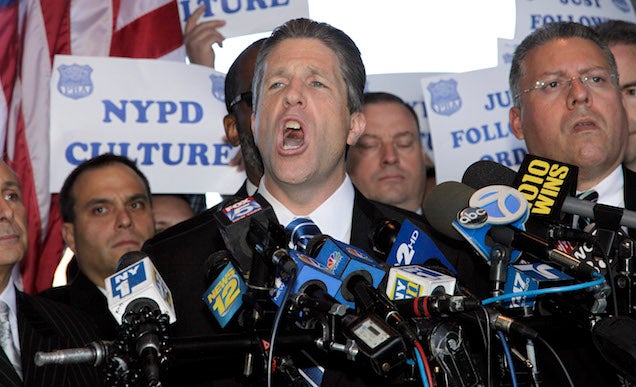
By Flint Taylor
In These Times
Jan 14, 2015 - Outraged by New York City Mayor Bill de Blasio's statements concerning the killing of Eric Garner, Patrick Lynch, the longtime leader of the New York City Patrolmen's Benevolent Association (PBA), the NYPD's officers union, recently made the outrageous assertion that the Mayor had "blood on his hands" for the murder of the two NYPD officers.
In Milwaukee this past fall, the Police Association called for, and obtained, a vote of no confidence in MPD Chief Ed Flynn after he fired the officer who shot and killed Dontre Hamilton, an unarmed African American; subsequently, the union's leader, Mike Crivello, praised the District Attorney when he announced that he would not bring charges against the officer.
In Chicago, the Fraternal Order of Police (FOP), a longtime supporter of racist police torturer Jon Burge, is now seeking to circumvent court orders that preserve and make public the police misconduct files of repeater cops such as Burge, by seeking to enforce a police contract provision that calls for the destruction of the files after seven years. And in a show of solidarity with the killer of Michael Brown, Chicago's FOP is soliciting contributions to the Darren Wilson defense fund on its website.
Such reactionary actions by police unions are not new, but are a fundamental component of their history, particularly since they came to prominence in the wake of the civil rights movement. These organizations have played a powerful role in defending the police, no matter how outrageous and racist their actions, and in resisting all manner of police reforms.
New York
In June 1966, New York City Mayor John Lindsay, responding to widespread complaints of police brutality, called for a civilian review board. Five thousand off duty NYPD cops rallied at City Hall in opposition, and the head of the PBA, leading the campaign against civilian review, intoned that "I am sick and tired of giving in to minority groups, with their whims and their gripes and shouting. Any review board with civilians on it is detrimental to the operations of the police department." Invoking the specter of increased crime, the PBA mounted a massive public relations campaign against the measure, and it was defeated in a referendum that year.
In 1975, in response to proposed budget cuts that included police layoffs, the PBA ordered a rampage through the city's black and Puerto Rican communities, with thousands of off duty cops waving their guns, banging on trash cans, and blowing whistles for several nights until Mayor Abe Beame obtained a restraining order.
Ten years later, after Mayor Ed Koch revived the issue of civilian review in the wake of a white cop killing Eleanor Bumpurs, an elderly and mentally ill black woman, the PBA again condemned the idea, staged a work slowdown in response to the attempted prosecution of the officer, Stephen Sullivan, and pressured Koch into reinstating Sullivan even though he had been criminally charged with the killing.
In 1992, when David Dinkins, the first (and only) African-American Mayor of New York City sought to implement a civilian review agency to investigate allegations of police misconduct, the PBA organized another City Hall rally in protest. This time, the crowd of officers numbered 10,000, with PBA members hurtling barricades, jumping on cars, blocking the Brooklyn Bridge and kicking a reporter. Some of the rally's participants carried signs showing Dinkins with a bushy Afro haircut and swollen lips, with racist slogans, including ones that ridiculed him as a "washroom attendant."
In the mid-1990s, the independent Mollen Commission, appointed by Mayor Dinkins to investigate police corruption, documented widespread police perjury, brutality, drug dealing and theft in the NYPD, and found that "by advising its members against cooperating with law-enforcement authorities, the P.B.A. often acts as a shelter for and protector of the corrupt cop." These findings were seconded by senior NYPD officials and prosecutors who were quoted by the New York Times as saying that they would continue to "have trouble rooting out substantial numbers of corrupt officers as long as the P.B.A. resists them."
The Times further quoted these officials as complaining that the PBA, "fortified with millions of dollars in annual dues collections . . . is one of the most powerful unions in the city. As an active lobbyist in Albany and as a contributor to political campaigns, the P.B.A. has enormous influence over the department and is typically brought in for consultations before important management decisions are made." ...(Click title for more)
|
By Allegra Kirkland
Beaver County Peace Links via AlterNet
Jan 9, 2015 - It's common knowledge that the U.S. devotes more money to our defense budget than any other industrialized nation. But just how much we spend is remarkable.
This year, we're on track to spend over $1 trillion on national security, after factoring in nuclear weapons funding, military pensions and "overseas contingency funds," in addition to the Pentagon's $580 billion operating budget.
In total, this figure accounts for about 4 percent of the United States' income-double what most other countries spend. Yet all of this budgetary bloat has done nothing to advance our strategic interests in countries like Syria and Iraq. In an investigative piece [4] in the most recent Atlantic, James Fallows explains why.
"The Tragedy of the American Military" convincingly makes the case that the deepening divide between the military and the American public is the reason we spend such absurd sums on the tools and technology of war. We have, Fallows argues, become a "chickenhawk" nation: blindly supportive of our troops and perma-ready to deploy them, yet distantly removed from the consequences of these costly geopolitical games. The vast majority of Americans don't have personal ties with any service members, and politicians are petrified of the political risks of seeming unsupportive of the military (the House Armed Services Committee passed [5] the most recent defense budget by a vote of 61-0). According to Fallows, this potent combination of emotional distance and hero worship means we avoid "the caveats or public skepticism we would apply to other American institutions, especially ones that run on taxpayer money."
The problem isn't just how much money we spend on national security, but what we spend it on. In a tightly bound circle of favors, the military asks for a tremendous amount of funding, congressional leaders eager to gain new defense contracts in their districts grant it, and the contractors whose livelihoods depend on selling massive amounts of new weaponry rake in millions. This is why so much is allocated toward developing updated models of existing technologies, despite the Pentagon's lack of adequate funding for veterans' care, training and pensions.
One such example is the F-35 fighter jet. The F-35 is intended to replace the A-10, a durable, inexpensive plane that has been used by the American military since the Vietnam War. There's no urgent need to phase out the A-10. These planes have proven to require minimal upkeep, and we already have thousands stockpiled. So why are we on track to spend $1.5 trillion-the same estimated cost as the entire Iraq war-to replace them with the expensive and unreliable F-35? Because top military brass insists the A-10s are outdated. Because 1,200 defense contractors received commissions to develop this new technology. And because, as Fallows points out, "the general public doesn't care."
But we should. These massive expenditures burn through money that could be spent on domestic policy efforts like repairing our crumbling national infrastructure of bridges and roads, or bolstering the education budgets in impoverished school districts. ...(Click title for more)
|
As Extremist 'Constitutional Sheriffs' Meet Senators, Supporters Call for Obama's Lynching

By David Neiwert SPLC Hatewatch
Jan 8, 2015 - In one of the spacious meeting rooms of the Russell Senate Building in Washington, D.C., last month, three conservative members of Congress had an unusual meeting with a small group of law-enforcement officers who ascribe to far-right "constitutionalist" theories.
CSPOA-SenateU.S. Sens. Jeff Sessions, R-Ala., and David Vitter, R-La., and Rep. Martha Blackburn, R-Tenn., all met with former Arizona Sheriff Richard Mack, the far-right former lawman from Graham County, Ariz., who now leads the Constitutional Sheriffs and Peace Officers Association (CSPOA), a group of "constitutionalist" sheriffs who see themselves the last line of defense against those who would seek to infringe on the U.S. Constitution.
Originally billed in the National Review as a "massive gathering" of sheriffs from around the nation to protest immigration, the event was organized by two sheriffs who are active leaders in former Mack's CSPOA and drew a much smaller crowd. And while CSPOA promoted the event and reported on it afterward, Mack told Hatewatch that it was not the chief organizer.
"I was invited to attend and we provided a little hors d'oeuvres," he told Hatewatch. Still, he said, "I was really proud of these sheriffs for trying to take care of something on their own."
The focus of the event was to stand in protest of President Obama's executive action, taken after years of congressional inaction, to offer temporary legal status to undocumented immigrants who have been in the country for at least five years and whose children were born here and are U.S. citizens, provided they pass a background check and pay taxes. But it wasn't long before a group of extremists supporting Mack made itself known.
Just down the Capitol Mall that same day, a small group of protesters supporting the sheriffs gathered at the White House and began shouting slogans and demanding the removal of President Obama. Some in the crowd demanded the president be lynched-"Hang the lying Muslim traitor!" one of them shouted.
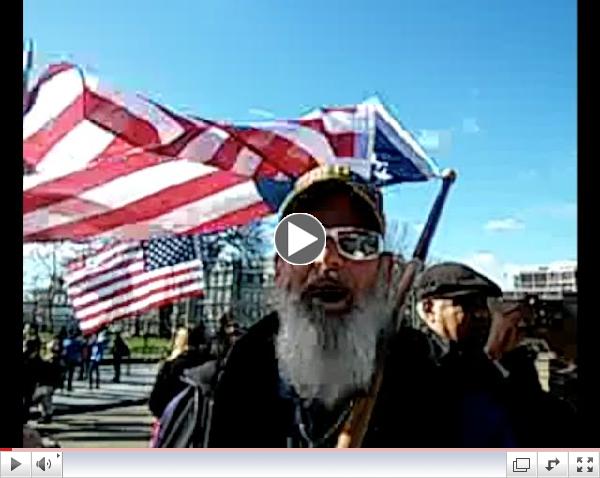 | | 'Hang the Traitor' Shout Protesters Outside White House for 'Constitutional Sheriffs' Rally |
The same group of protesters then proceeded to the Senate building where the sheriffs were meeting, but were not permitted inside and instead lingered in the foyer. When the meeting ended, the demonstrators lustily greeted the emerging law enforcement officers and Congress members, some of them shaking hands and hugging the participants....(Click title for more)
|

Dr. Martin Luther King, Jr., and the Rev. Ralph Abernathy lead a march by sanitation workers in Memphis, March 28, 1968. Photo by Sam Melhorn / AP.
...King knew that black and white workers' struggles for economic justice were indivisible; that civil rights could not be realized in a society where great differences in wealth and income existed...
By Harry R Targ
The Rag Blog
Jan 21, 2013 - Dr. Martin Luther King arrived in Memphis on March 18, 1968 to support the sanitation workers of that city who had been on strike for five weeks. These workers had many grievances that forced them to protest.
Garbage workers had no access to bathroom or shower facilities. They were not issued any protective clothing for their job. There were no eating areas separate from garbage. Also sanitation workers had no pension or retirement program and no entitlement to workers compensation. Their wages were very low.
Shortly before the strike began two workers died on the job and the families of the deceased received only $500 in compensation from the city. Finally, after Black workers were sent home for the day because of bad weather and received only two hours pay they walked off the job.
On March 28, 10 days after King arrived, violence disrupted a march led by him. He left the city but returned on April 4 to lead a second march. On that fateful April day, King told Jerry Wurf, president of the American Federation of State, County, and Municipal Employees or AFSCME: "What is going on here in Memphis is important to every poor working man, black or white, in the South." That evening Martin Luther King was killed by a sniper's bullet.
It was logical for King to be in Memphis to support garbage workers. Despite a sometimes rocky relationship between the civil rights and labor movements, King knew that black and white workers' struggles for economic justice were indivisible; that civil rights could not be realized in a society where great differences in wealth and income existed, and where life expectancies, educational opportunities, and the quality of jobs varied by class, by race, and by gender.
The more progressive and far-sighted leaders and rank-and-file union members in the AFL-CIO knew it too. At the time of King's death working people were coming together to struggle for positive social change around the banner of the Poor People's Campaign.
Dr. King's thinking on the need for an alliance between the civil rights and labor movements was expressed many times. As far back as 1957 at a convention of the United Packinghouse Workers of America (UPWA) he asserted that "organized labor can be one of the most powerful instruments in putting an end to discrimination and segregation." ...(Click title for more)
|

A woman holds a Greek flag during a protest outside of the Greek Parliament building in Athens, Nov. 6, 2012. Greeks began two days of nationwide strikes on Tuesday to protest new austerity measures, which include further cuts to pensions, civil service salaries and social benefits. (Angelos Tzortzinis/The New York Times)
By Michael Nevradakis,
Truthout | Interview
Jan 15, 2015 - In the following interview, New School professor and economist Richard Wolff provides his analysis of the causes of the economic crisis in Greece and in the eurozone, debunks claims that the Greek economy is recovering and offers his proposal for what a post-capitalist future could look like for Greece and the world.
Michael Nevradakis: Prior to the elections, we've heard talk about how the situation in Greece is turning around, that the economy is recovering. How do you respond to this?
Richard Wolff: I respond to it in the same way that I respond to this sort of report that periodically surfaces here in the United States. Here's the way that I would describe it. We have the worst economic downturn in the last 75 years, second only to the Great Depression of the 1930s, and we're not yet clear how long this one will last and how bad it will be, so it may even overtake the one in the 1930s; we just don't know.
"For the vast majority of people, there has been no recovery."
I would remind everyone that in the aftermath of the Great Depression, with the rise of Keynesian economics, we were told in the economics profession that we had learned the lessons, that we had the mechanisms, we had the research, we had the monetary and fiscal policies and the Keynesian economic theory behind it all to make sure that this kind of economic collapse, cutting this deep, lasting this long, would never happen again. The same people who assured us of that, through the 11 economic downturns that happened in the United States alone between the end of the Great Depression in 1941 and the beginning of this one in 2007, told us, "We have a downturn, but it's not so bad, and we have at least learned the lesson to avoid a really bad one." Well, now we have the really bad one too. So my first reaction to these conversations about having turned the corner is we're being told that by the exact same people with the exact same level of confidence with which they told us that we would not be in this situation in the first place.
The second thing I would say is this: There has been a recovery. There has been a recovery in the incomes and wealth of the 5 to 10 percent of many of the societies hit by the crisis; stock markets in many countries have recovered; corporate profits have recovered in some parts in both financial and non-financial industries - but for the vast majority of people, there has been no recovery. Unemployment is at record highs in many parts of the world. Even for those who have kept their jobs, their jobs have fewer benefits, lower degrees of security [and] children are having to forego education or rack up enormous debts to pay for it. Wherever we turn, the basic life condition of the mass of people is poorer than it was five and six years ago.
There is no recovery for the mass of people, and in the end, even those at the top cannot long enjoy a recovery that is denied to the masses below them, even though they refuse to face that reality and therefore suffer the continuation of this crisis. There is a recent report by a leading German economic research institute begging the European Central Bank to pump more money - quantitative easing, they call it - into the European economy to prevent a deflationary downward spiral. Those who are promising recovery [will continue] have a hard time explaining why a conservative economic research institute in Germany should reverse itself and be so anxiety-ridden that this economic downturn will continue for the future.
In your opinion, what led countries such as Greece into the crisis in the first place? Was it simply what we've been hearing in the media that these countries "lived beyond their means" or is there something more that you could point to?
The argument about living beyond their means is somewhere between offensive and silly. Most countries most of the time borrow, and borrow at an increasing pace. They are all "living beyond their means." And they've been doing it in many cases, including that of Greece, for quite a while. The question is not "do they do that?" because they all basically do. Let me remind you that over the last six years, the United States has virtually tripled its outstanding debt, [and] is living beyond its means on a scale that could not have been imagined before, so no one is in a position to argue that that's the problem. The United States is doing better than Europe even though it's borrowing more money than the Europeans.
"Goldman Sachs helped the Greeks to develop new kinds of accounting that could disguise or misrepresent parts of the borrowing that they were doing, or at least make people think it was less than it was before."
I think the issue in Greece, as elsewhere, has to be explained by a number of conditions that came together. The first problem in Greece was not that they were borrowing too much, but was rather that the lenders to Greece were no longer interested in lending to Greece the way they had been. Many of those lenders had actively pushed Greece into borrowing because they made huge fees off of the national debt of Greece, as they do of most countries. Goldman Sachs helped the Greeks to develop new kinds of accounting that could disguise or misrepresent parts of the borrowing that they were doing, or at least make people think it was less than it was before.
The biggest problem for Greece was the global economic collapse of 2008. Suddenly every major capitalist country, led by the United States, was having to ramp up its borrowing by the hundreds of billions of dollars, and what that meant was that every lender around the world, every bank, every insurance company, every typical lender to a government, suddenly had an immense increase in demand for loanable funds.
Many of those borrowers, like the United States, had much higher credit ratings than the Greek government, for all kinds of reasons, and the result was that the lenders saw that they could lend all they want at much lower risk to desperate countries like the United States, trying to dig its way out of a crisis, and so they turned to the Greeks and said, "Why should we lend to you, who are a risk relative to lending to the United States, or Britain, or France, or Germany?" and suddenly the Greeks discovered that their lenders, particularly German and French banks, but others as well, had a more attractive borrower, and suddenly the terms for the Greeks became much more onerous. Interest rates rose, conditions became harsher and the long-standing pattern of borrowing in Greece was suddenly confronted by a serious change of heart of the traditional lenders....(Click title for more)
|
|
The Bureau of Narcotics' Strange Obsession
By Johann Hari
In These Times
Jan 16, 2015 - It was more comforting to believe that a white powder was the cause of black anger, and that getting rid of the white powder would render black Americans docile and on their knees once again.
Jazz was the opposite of everything Harry Anslinger, the first commissioner of the Federal Bureau of Narcotics (established in 1930), believed in. It is improvised, and relaxed, and free-form. It follows its own rhythm.
Worst of all, it is a mongrel music made up of European, Caribbean and African echoes, all mating on American shores. To Anslinger, this was musical anarchy, and evidence of a recurrence of the primitive impulses that lurk in black people, waiting to emerge. "It sounded," his internal memos said, "like the jungles in the dead of night." Another memo warned that "unbelievably ancient indecent rites of the East Indies are resurrected" in this black man's music. The lives of the jazzmen, he said, "reek of filth."
His agents reported back to him that "many among the jazzmen think they are playing magnificently when under the influence of marihuana [sic] but they are actually becoming hopelessly confused and playing horribly."
The Bureau believed that marijuana slowed down your perception of time dramatically, and this was why jazz music sounded so freakish-the musicians were literally living at a different, inhuman rhythm. "Music hath charms," their memos say, "but not this music." Indeed, Harry took jazz as yet more proof that marijuana drives people insane. For example, the song "That Funny Reefer Man" contains the line "Any time he gets a notion, he can walk across the ocean." Harry's agents warned: "He does think that."
Anslinger looked out over a scene filled with men like Charlie Parker, Louis Armstrong and Thelonious Monk, and-as the journalist Larry Sloman recorded-he longed to see them all behind bars. He wrote to all the agents he had sent to follow them and instructed: "Please prepare all cases in your jurisdiction involving musicians in violation of the marijuana laws. We will have a great national round-up arrest of all such persons on a single day. I will let you know what day." His advice on drug raids to his men was always, "Shoot first."
He reassured congressmen that his crackdown would affect not "the good musicians, but the jazz type." But when Harry came for them, the jazz world would have one weapon that saved them: its absolute solidarity. Anslinger's men could find almost no one among them who was willing to snitch, and whenever one of them was busted, they all chipped in to bail him out.
In the end, the Treasury Department told Anslinger he was wasting his time taking on a community that couldn't be fractured, so he scaled down his focus until it settled like a laser on a single target-perhaps the greatest female jazz vocalist there ever was-Billie Holiday.
Harry had heard whispers that this rising black star was using heroin, so he assigned an agent named Jimmy Fletcher to track her every move. Harry hated to hire black agents, but if he sent white guys into Harlem and Baltimore, they stood out. Jimmy Fletcher was the answer. His job was to bust his own people. Many agents in this position would shoot heroin with their clients, to "prove" they weren't cops. We don't know whether Jimmy joined in, but we do know he had no pity for addicts: "I never knew a victim," he said. "You victimize yourself by becoming a junkie."
Dancing with the devil
When Billie sang "Loverman, where can you be?" she wasn't crying for a man-she was crying for heroin. But when she found out her friends in the jazz world were using the same drug, she begged them to stop. Never imitate me, she cried. Never do this.
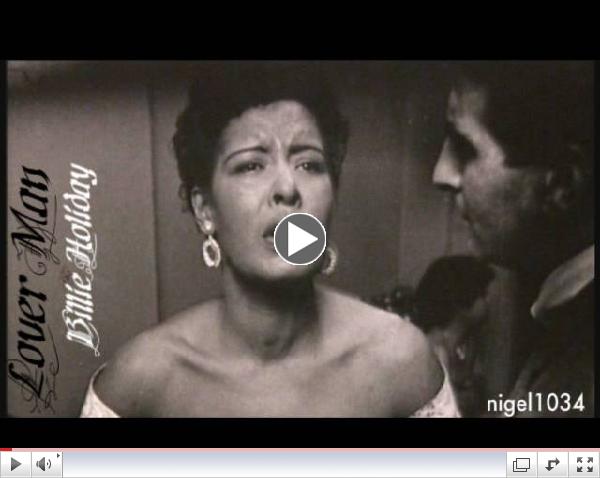 | | Lover Man by Billie Holiday with Count Basie |
She kept trying to quit. She would get her friends to shut her away in their houses for days on end while she went through withdrawal. As she ran back to her dealers, she cursed herself as "No Guts Holiday." Why couldn't she stop? "It's tough enough coming off when you've got somebody who loves you and trusts you and believes in you," she wrote. "I didn't have anybody." Actually, she said, that's not quite right. She had Anslinger's agents, "betting their time, their shoe leather, and their money that they would get me. Nobody can live like that."
The morning he first raided her, Jimmy took Billie to one side and promised to talk to Anslinger personally for her. "I don't want you to lose your job," he said.
Not long after, he ran into her in a bar and they talked for hours, with her pet Chihuahua, Moochy, by her side. Then, one night, at Club Ebony, they ended up dancing together-Billie Holiday and Anslinger's agent, swaying together to the music.
"And I had so many close conversations with her, about so many things," he would remember years later. "She was the type who would make anyone sympathetic because she was the loving type." The man Anslinger sent to track and bust Billie Holiday had, it seems, fallen in love with her. Confronted with a real addict, up close, the hatred fell away.
A quiet holiday
But Anslinger was going to be given a break on Billie, one he got nowhere else in the jazz world. Billie had got used to turning up at gigs so badly beaten by Louis McKay, her pimp-turned-husband, that they had to tape up her ribs before pushing her onstage. She was too afraid to go to the police-but finally she was brave enough to cut him off.
"How come I got to take this from this bitch here? This low-class bitch?" McKay raged. "If I got a whore, I get some money from her or I don't have nothing to do with the bitch. I don't want no cunt." He had heard that Harry Anslinger wanted information on her, and he was intrigued. "She's been getting away with too much shit," McKay said, adding he wanted "Holiday's ass in the gutter in the East River." That, it seems, was the clincher. "I got enough to finish her off," he had pledged. "I'm going to do her up so goddamn bad she going to remember as long as she live." McKay traveled to D.C. to see Harry, and agreed to set her up....(Click title for more)
|
 By Gregg Shotwell By Gregg Shotwell
MRZine
The title Doing History from the Bottom Up not only defines the purpose and sets the direction; it lays down a challenge. The author, Staughton Lynd, uses the present continuous form of the verb "do," which indicates that there is really no beginning nor end. Lynd challenges us to act rather than ideate, and he demands that the action proceed from the primary source -- that is, the "bottom."
Doing History from the Bottom Up turns standard academic method upside down, but there's another component as well. Lynd told me: "'Doing history' is a term I got from Edward Thompson. He didn't think a person could 'do history' and 'do politics' at the same time. But I think we have to try to do both together." In this sense, "doing" is the present progressive form of historical research. The subject is living, and the practitioners of this "guerrilla history," as Lynd calls it, learn as they teach.
"Oral history, like every other form of American history, proceeds from elitist presumptions," Lynd contends. As a result, "Existing histories of the recent labor movement tend to be both thin and misleading." We are led to believe that social movements start at the top and are entirely dependent on leaders. Such theories are convenient to politicians, a category which includes union officials, whose object is control and manipulation.
A former steelworker, Jesse Reese, whom Lynd recorded in 1970 describes our present labor malaise succinctly and points toward a different solution:
Today we have in our unions a pet dog -- what you might call a pet company dog -- led by the caretakers; and the caretakers are the leaders of our union. And the dog is being fed red-baiting and his teeth have been pulled out (that's the no-strike clause) and your dog don't bark no more for you. So the only thing you can get to win now is a cat, and it's got to be a wildcat, organized as a blanket matter. You've got to use blanket cover to keep from being exposed.
The predominant union history lionizes leaders like John L. Lewis and Walter Reuther. The analysis of history from below, however, reveals a stubborn rank-and-file resistance to autocratic rule disguised as democracy and a preference for direct action.
Business unionism shackled the rank and file with two cuffs. First, the management prerogative clause, which gives companies the unilateral right to close a plant and move work elsewhere. Second, the no-strike clause, which prohibits strikes and slowdowns for the duration of the contract. Union officials stripped rank-and-file members of the power to challenge management. It is no wonder that the dog doesn't bark. He doesn't have the teeth to back it up.
A concerted effort by government, business, and union bureaucrats to throttle direct action has bought labor peace, but the price has proved too steep for workers. Urgent need demands action. We can't prove that radical alternatives to business unionism will succeed, but the present course -- two-tier, three-tier, and temp workers -- is a social and moral disaster.
Lynd contends: "The structure of hierarchical unions will not change simply by electing new people to run them." Solidarity unionism is the alternative he recommends, but it must "be distinguished from a merely tactical rather than strategic or principled argument for solidarity." Lynd cites as example "The Inside Game," a pamphlet put out by the American Federation of Labor and Congress of Industrial Organizations (AFL-CIO), which appears to promote the direct action tactics that built the unions in the 1930s. The pamphlet invokes rank-and-file resistance, but the goal is to persuade management that dealing with professional union reps behind closed doors is preferable to the rabble. This is precisely what John L. Lewis did when the CIO was organized. Once Lewis was in control, he got rid of the radicals who organized the union.
The alternative, solidarity unionism, would retain the radicals, never concede the right to strike, and soundly reject the assumption that labor and management have "mutually consistent interests." Lynd cites a real expert -- rank-and-file steelworker Ed Mann:
I believe in direct action. Once a problem is put on paper and gets into the grievance procedure, you might as well kiss that paper goodbye. When the corporations started recognizing unions, they saw this. They co-opted the unions with the grievance procedure and the dues check-off. They quit dealing with the rank and file and started dealing with the people who wanted to be bosses like them, the union bosses.
Business unionism was constructed to stifle and control the rank and file. In the new United Automobile Workers (UAW), which I am so familiar with, competitiveness -- not solidarity -- is the relevant buzzword. The labor-management relationship is described as a partnership and adversarial intonations are muzzled. The result is two-tier -- the ultimate insult to anyone who believes in solidarity....(Click title for more)
|
|
Keep up with the Moral Mondays with a Red Resolution...
Become a CCDS member today!
 The time is long past for 'Lone Rangers'. Being a socialist by your self is no fun and doesn't help much. Join CCDS today--$36 regular, $48 household and $18 youth. The time is long past for 'Lone Rangers'. Being a socialist by your self is no fun and doesn't help much. Join CCDS today--$36 regular, $48 household and $18 youth.
Better yet, beome a sustainer at $20 per month, and we'll send you a copy of Jack O'Dell's new book, 'Climbing Jacobs Ladder,' drawing on the lessons of the movement in the South in the 1950s and 1960s.
Solidarity, Carl Davidson, CCDS
|
|
|